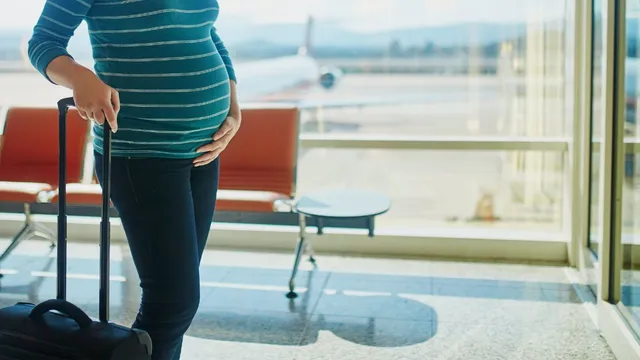- By Priyanka Munshi
- Sat, 28 Dec 2024 05:42 PM (IST)
- Source:JND
Pregnancy often brings a mix of excitement and caution, especially when it comes to travel. During the winter months, many families take the opportunity to visit loved ones, attend functions, or go on holidays. For a pregnant woman, travel plans are not just about choosing a destination but also ensuring safety for herself and her baby. Before embarking on any trip, there are a few key factors to consider to ensure a smooth and healthy journey.
One of the first questions every expecting mother asks when considering travel is, "Is it safe?" The answer often depends on which trimester the pregnancy is in. In a conversation with Jagran English, Dr. Sucheta Parte, a Consultant Obstetrician and Gynecologist at Motherhood Hospitals, Lullanagar, Pune, discussed pregnancy and travel: what every expecting mother should know.
Trimester Considerations
- First Trimester: This is a period when many women experience fatigue, nausea, and hormonal fluctuations. It is generally safe to travel, but frequent stops and hydration are recommended. However, there may be risks of miscarriage during this time, so it’s best to check with a healthcare provider before traveling long distances.
- Second Trimester: This is often considered the safest period for travel. Morning sickness usually subsides, and energy levels return. However, it’s still essential to avoid overly strenuous travel and ensure that the destination has proper medical facilities if needed.
- Third Trimester: Travel in the third trimester may be more challenging due to increased discomfort and a higher risk of preterm labor. Most airlines have restrictions on travel after 36 weeks of pregnancy, and long journeys can be taxing. Domestic air travel is allowed until 36 weeks, while international travel is usually permitted only until 32 weeks. It’s critical to plan ahead and discuss any potential risks with a doctor.
Risk Factors And Health Conditions
For pregnant women with specific health conditions, travel requires more careful consideration.
Hypertension: Pregnancy-induced hypertension can make travel difficult, particularly to high altitudes or areas with limited access to medical care. It’s crucial for women with hypertension to monitor their blood pressure regularly and consult a healthcare provider before traveling.
Low-Lying Placenta: For those with a low-lying placenta, travel might need to be postponed, especially if there’s a risk of bleeding. This condition can pose a risk during air travel or extended travel times.
Threatened Preterm Labor: Women experiencing threatened preterm labor should avoid long-distance travel. Doctors may recommend staying close to home and refraining from activities that could induce premature labor.
Gestational Diabetes: Women with gestational diabetes should plan their travel carefully, as blood sugar management becomes a priority. Inadequate food options and travel stress can affect blood sugar levels, leading to complications. It’s important to bring healthy snacks, monitor blood sugar levels, and seek advice from a doctor regarding insulin use while traveling.
Anemia: Pregnant women with anemia (low iron levels) may feel fatigued and more prone to dizziness, especially during long journeys. Travel to remote areas without immediate access to medical care can exacerbate these symptoms. Women with anemia should ensure they have iron supplements and plan for plenty of rest.
Multiple Pregnancies: Women expecting twins or more have higher risks of complications such as preterm labor or hypertension. Due to the increased strain on the body, extra precautions should be taken before making any travel arrangements.
At last, Dr. Sucheta Parte emphasized, "Pregnancy and travel can go hand in hand, but it’s essential for expecting mothers to prioritize their health and the health of their baby. By considering the trimester, assessing any pre-existing conditions, and consulting a healthcare provider, pregnant women can make informed decisions about travel during pregnancy. Always take necessary precautions to ensure a safe, enjoyable trip."

